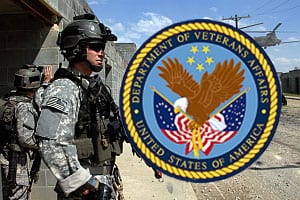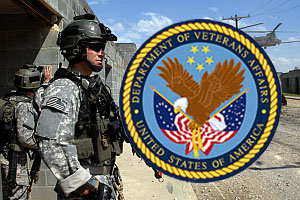statFor some women, it's about making an elegantement at special events or being a couple…

Chiropractic Care and the U.S. Department of Veterans Affairs (VA)
 After years of fighting in Iraq and Afghanistan, large numbers of U.S. servicemen and women have returned home with a wide range of physical and psychological injuries. While the American media has done a great deal to raise awareness of many of the challenges they face, from traumatic brain injuries and lost limbs to hearing loss and PTSD, other health issues have received much less attention. Back pain–often serious and sometimes debilitating–is one of them. “We see quite a bit of spine pain among returning veterans,” said Tom Kotsonis, a staff physician in physical medicine and rehabilitation at the Zablocki Veteran Affairs Administration Medical Center in Milwaukee. “The vast majority of young combat veterans we see are suffering from neck and back pain.”
After years of fighting in Iraq and Afghanistan, large numbers of U.S. servicemen and women have returned home with a wide range of physical and psychological injuries. While the American media has done a great deal to raise awareness of many of the challenges they face, from traumatic brain injuries and lost limbs to hearing loss and PTSD, other health issues have received much less attention. Back pain–often serious and sometimes debilitating–is one of them. “We see quite a bit of spine pain among returning veterans,” said Tom Kotsonis, a staff physician in physical medicine and rehabilitation at the Zablocki Veteran Affairs Administration Medical Center in Milwaukee. “The vast majority of young combat veterans we see are suffering from neck and back pain.”
In fact, the Spine Journal has reported that “There have been 10 times as many long-term spinal pain casualties unrelated to combat injuries among Iraq and Afghanistan veterans compared with blast injuries. After being medically evacuated from Iraq with non-battle-related spinal pain, patients have less than a 20% chance of returning to their unit and regular duty. [In addition,] 60% of veterans seeking care for spine problems have serious psychological distress.”
These kinds of statistics raise a number of questions that deserve answers. What’s causing this increased incidence of back and neck pain among the troops? And what’s being done about it?
According to the Milwaukee, Wisconsin-based Journal Sentinel, many U.S. Army infantry men and women on tour in Iraq and Afghanistan carry 50 to 60 pounds (or more) on their backs for hours daily while performing foot patrols. Heavy helmets, body armor, gear, weapons, and extra ammunition all weigh them down, causing considerable stress on the neck and spine. “The number of people getting evacuated from war zones for back pain has been as high as 60% of the wounded,” explains Eugene Carragee, an editor for The Spine.
Faced with these kinds of experiences in the field, many veterans are looking for help from their own: the U.S. Department of Veteran Affairs (VA). The Foundation for Chiropractic Progress (F4CP) reports that a VA policy allows veterans access to chiropractic care. In fact, the VA has begun providing veterans chiropractic care by employing chiropractic doctors on staff at VA hospitals.
From the F4CP: “The VA now provides chiropractic care (via hired or contracted staff) at approximately 40 major VA treatment facilities within the United States. Unfortunately, an overwhelming majority of America’s veterans still do not have access to chiropractic care because the VA has taken no action to provide chiropractic care at approximately 100 of its major medical facilities.”
This is indeed unfortunate—according to Military.com, Veteran Affairs hospitals with chiropractors on staff are in just 23 states: California, Maine, Connecticut, Florida, Illinois, Georgia, Kansas, Montana, New York, Ohio, Iowa, Wisconsin, Nevada, Tennessee, South Carolina, Washington, Michigan, New Mexico, Mississippi, Pennsylvania, Texas, South Dakota, and West Virginia.
Retired Brigadier General Rebecca S. Halstead has been a vocal advocate for expanding chiropractic care among America’s military personnel. She understands first-hand the physical wear and tear that comes with serving in both combat and support roles. Plus, her own struggles with fibromyalgia and experience with chiropractic care have also helped to shape her perspective.
“They set me on a path of getting well. I’m the healthiest I’ve been in 10 years. I was taking eight or 10 prescription drugs in 2008. The more I went to the chiropractor, the less prescriptions I needed.”
“When I retired, my pain was easily a 9 or 10 (on a 10-point scale) every single day. My pain now is a 2 or 3, and maybe even sometimes a 1. I don’t think I’ve hit a 10 since I started regularly seeing a chiropractor.”
“If I had known how much chiropractic care would help me when I was a commander in Iraq and in the United States, I could have taken better care of my soldiers.”
There are two congressional bills that, if signed into law, could help veterans get expanded access to the help they need, according to the American Chiropractic Association. The first is H.R.921, the Chiropractic Care Available to All Veterans Act. If signed into law, H.R.921 would require the VA to have a chiropractic physician on staff at all major VA medical facilities by 2016. In addition, there is S.422, Chiropractic Care Available to All Veteran Act of 2013, which would also require the same as HR 921. Neither of these bills have yet been passed, but any citizen can contact their Congressman or Congresswoman to voice their support for those men and women who have served their country.
General Halstead herself sees this as a priority. “Until we’ve done that we have not fulfilled our leadership responsibility,” Halstead said. “If you want to help them, see a congressman and ask ‘aren’t our men and women getting these benefits?’




